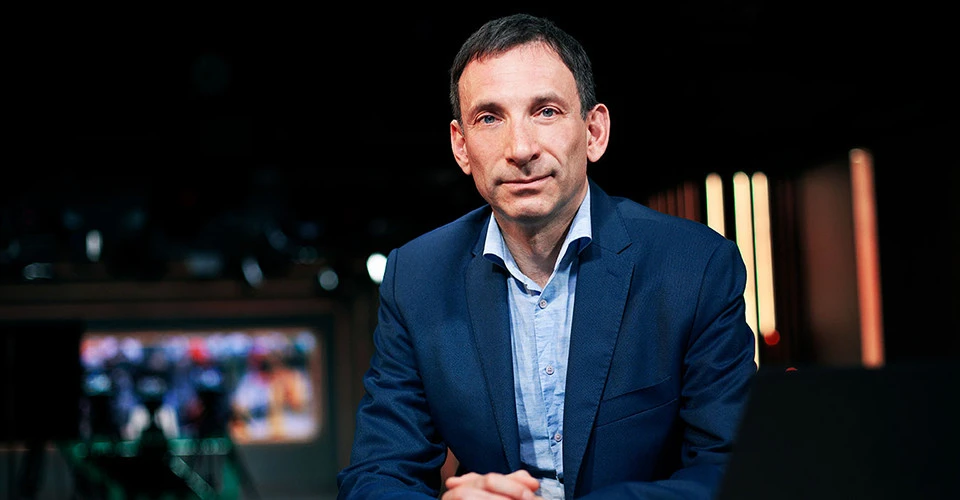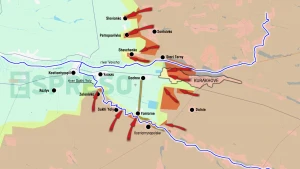
The Economist: political splits in Kyiv. Vitaly Portnikov's column
The British publication The Economist, which recently published a high-profile essay by Ukrainian Armed Forces Commander-in-Chief Valerii Zaluzhnyi on the situation in the Russian-Ukrainian war and the need to change the army's military and technical potential, this time speaks of a serious political quarrel that prevails in Kyiv
This split refers not only to disagreements between the politicians themselves, but also to the feud between Ukrainian President Volodymyr Zelenskyy and Ukrainian Armed Forces Commander-in-Chief Valerii Zaluzhnyi. The publication argues that the atmosphere between the President of Ukraine, who is also the supreme commander of the Ukrainian Armed Forces, and the Commander-in-Chief is very tense for many reasons.
The first is that the Ukrainian army's offensive did not turn out as expected in Kyiv, and, of course, they are now looking for someone responsible for the fact that the forecasts for the offensive were not as realistic as they actually turned out to be. As you know, victories have many fathers, and defeats usually have only one person responsible, and no one wants to be that person.
It is also emphasized that Zaluzhnyi did not share the Ukrainian president's overly optimistic expectations of the offensive, and that from a hardware point of view, he should have been more prudent. However, no one in the Ukrainian leadership could argue with him about his sober assessment of the situation.
And this caused even more irritation, because, as you know, it is the truthful assessment of information that causes the greatest irritation to people who prefer to live in the world of their own illusions. I know this from my own professional experience. That is why I am not surprised by The Economist's assessment. Ukrainian politics, public life, and people's perception of reality have always consisted of illusions.
Another important point mentioned in the article is political jealousy. Trust in Commander-in-Chief Zaluzhnyi remains stable, while trust in President Zelenskyy is decreasing every day. The Economist refers to certain closed polls, but, as you know, the sociological information we have outside the magazine's sources can also indicate that such assessments are correct. Of course, it's not worth talking about any electoral numbers right now, as Russia's war with Ukraine continues, and we see more and more evidence that Russia is not even thinking about a truce with the state Vladimir Putin hates and is ready to fight as long as it takes to make Ukraine disappear from the political map of the world and to finally surrender, and we will have to resist this, fight it for long and difficult years.
Despite the fact that the reality is obvious, politicians are still thinking about some kind of election that has already become as much a political fantasy as peaceful life in Ukraine itself. So, of course, any high trust in someone who might be an imaginary competitor in the presidential election in Ukraine can really cause such emotions, because let's not forget that not only ordinary citizens but also those for whom they vote, prefer to live in illusions that will never become real life.
Of course, this article in The Economist is dangerous precisely from the point of view of public opinion and the opinion of those who help Ukraine, on whom Ukraine depends. No matter how we perceive reality, Ukraine today is completely dependent on the civilized world for its future survival. Ukraine is fighting with Western weapons and is able to maintain a certain level of its economy thanks to the money of Western taxpayers. And this situation may not change for many difficult years. Therefore, from the point of view of the real actions of the Ukrainian leadership, the main thing that it should demonstrate to its Western allies is unity, the absence of political strife, and a willingness to listen to the advice of those on whom it unconditionally depends in an effort to preserve the state and nation.
Obviously, if such a demonstration of unity existed, if certain representatives of the Ukrainian government and society moved from the world of ridiculous illusions to the world of reality, which is so uncomfortable, cold, and harsh, but there is no other world in the coming years, and maybe not for decades, it would be to our benefit. We would not have texts that are very difficult to refute amid the well-known proposals of Mariana Bezuhla, a member of the Ukrainian parliament from the ruling Servant of the People party and deputy of the relevant committee, who openly called for the resignation of the commander-in-chief of the Armed Forces of Ukraine.
As you can see, there has been no official reaction to this call, no attempts by any faction of the Servant of the People party to refute these calls, let alone official statements, to dissociate themselves from them, to emphasize that there is complete unity between Zelenskyy and Zaluzhnyi - none of this is happening. This further stirs up unnecessary passions in society and allows our Western allies to look at Ukraine with some surprise.
So the question is not even what the actual relationship between the President of Ukraine and the head of the Armed Forces is. The question is the information background that is being created not without effort by those whose task has long been to demonstrate unity, to create a government of national unity, to turn Ukraine into a model of such unity, and not into an amazing example of a country where, in the face of failure, people think not about preserving the state, but about preserving ghostly power in a country that no longer has a real economy and no other task than surviving the war.
This task should be the main objective of the Ukrainian leadership, the Armed Forces, society and all of us. The preservation of the state and the people, their survival, is the number one priority now. But if someone is interested in political competition, squabbles, quarrels and struggles, then all this will end in only one thing - a catastrophe.
About the author. Vitaly Portnikov, journalist, winner of the Shevchenko National Prize of Ukraine.
The editors don't always share the opinions expressed by the authors of the blogs.
- News













































